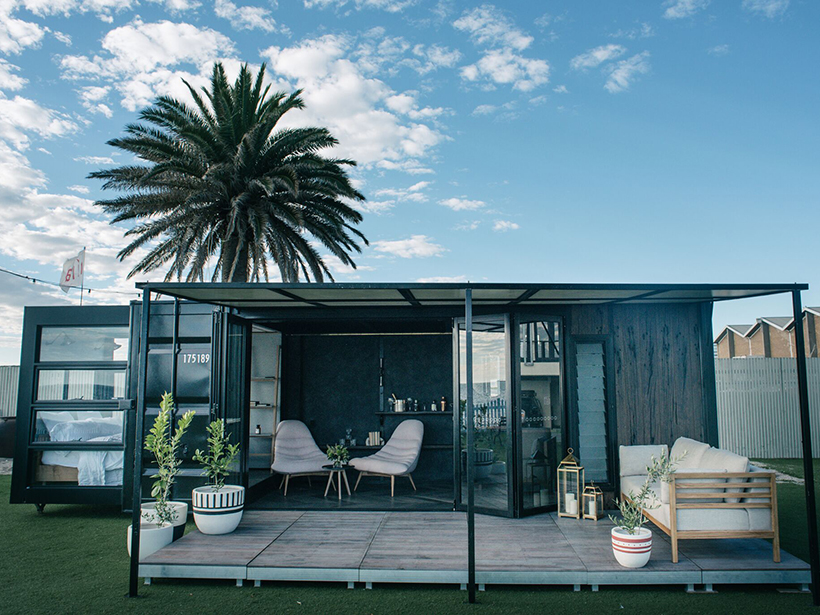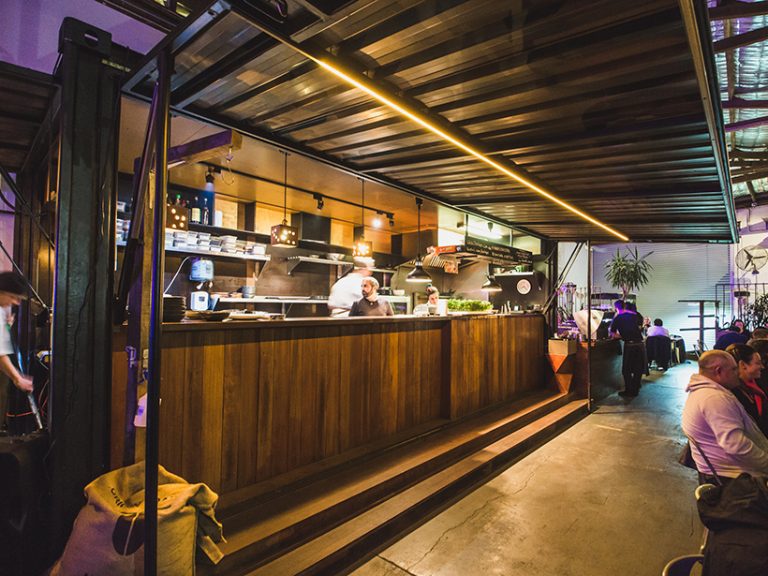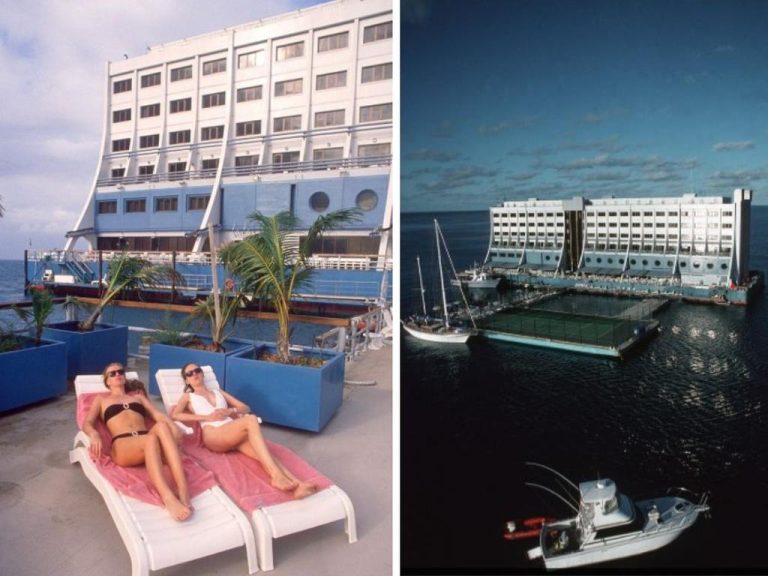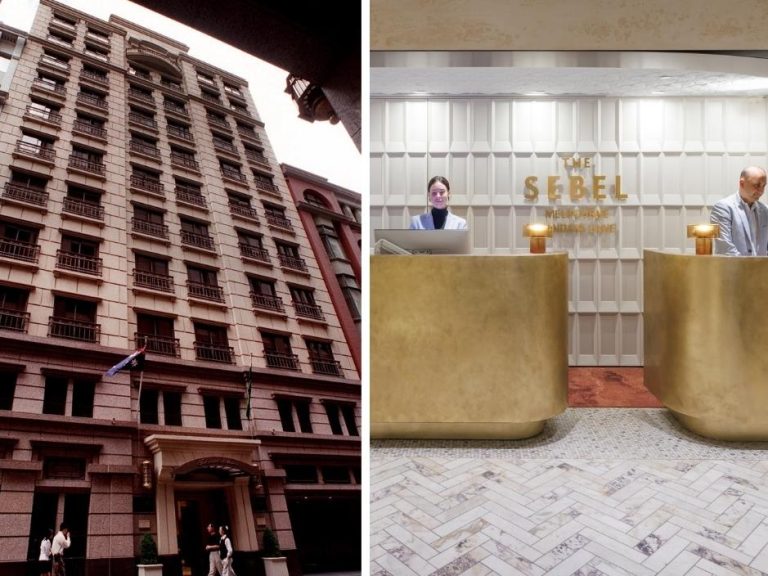From shipping container to glam accommodation

Making a 20-foot metal box – designed to haul heavy cargo across the world – appealing enough to live in can be no easy feat.
And yet as these pictures show, with a little ingenuity and a designer’s eye, it’s possible to turn a shipping container into a hotel room that’s every bit as luxurious and appealing as one you’d find in an inner-city hotel.
The folks at Contained, who specialise in repurposing shipping containers and have already used them with stunning effect to create a number of popular restaurants in Western Australia, have now turned their attention to accommodation.
Commercial Insights: Subscribe to receive the latest news and updates
The result is a one-bedroom hotel room that’s 100% portable and can be setup anywhere, from an island to a rooftop, and is intended as a way for land or business owners to generate another income stream.

The containers’ pop-out section houses a queen-sized bed.
Each room features a pop-out section that houses a queen-sized bed, while the middle section has a sitting area, sink and bar area, and the other end has a bathroom with a toilet and a surprisingly large shower.
Outside is a temporary deck with a fold-out awning, while bi-fold doors separate the internal and outdoor spaces.

The unit’s sitting area and bar.
Contained directors Anatoly Mezhov and Irene Polo say the containers are intended to unlock new spaces and experiences by offering places to stay where previously there were none.
“There are so many beautiful places to go visit … that’s how this idea was born. Let’s create a portable hotel room that’s beautiful, sustainable and comfortable, for short-term accommodation, and go out there and activate some of these spaces,” Mezhov says.

There’s still enough room for a rather large bathroom.
“The winery side of things is a bit of a no-brainer, but who knows? You could have people who have landholdings, islands, golf courses, an old beautiful heritage warehouse that you can’t really do much with, or rooftop car parks, you just never know.”
“You can pretty much put them anywhere.”
Mezhov and Polo say most of the containers they install will be via an arrangement where they lease land from a property owner and operate the container themselves.

The containers can be set up almost anywhere.
“Some people might have land, a winery, but they can’t be bothered with the accommodation side of things. Or they might not have the money to invest into it, so we’ll just enter into a licensed lease arrangement with them where we rent their land, we bring the unit, we set it up and we operate it.”
Most containers require water and power sources, though Mezhov says they can be setup to collect water, generate power and treat sewage, in order to be completely off-grid.

The internal space includes a bed, sitting area, bar and bathroom.







